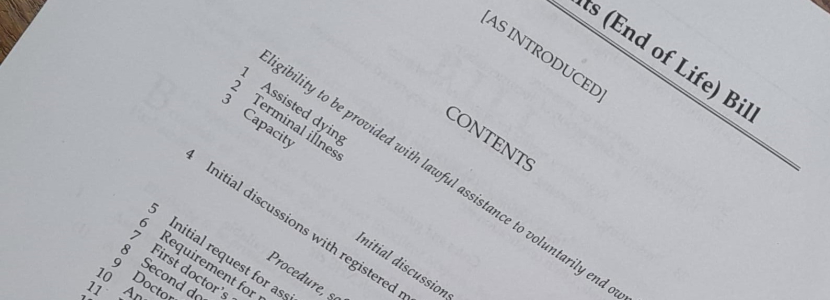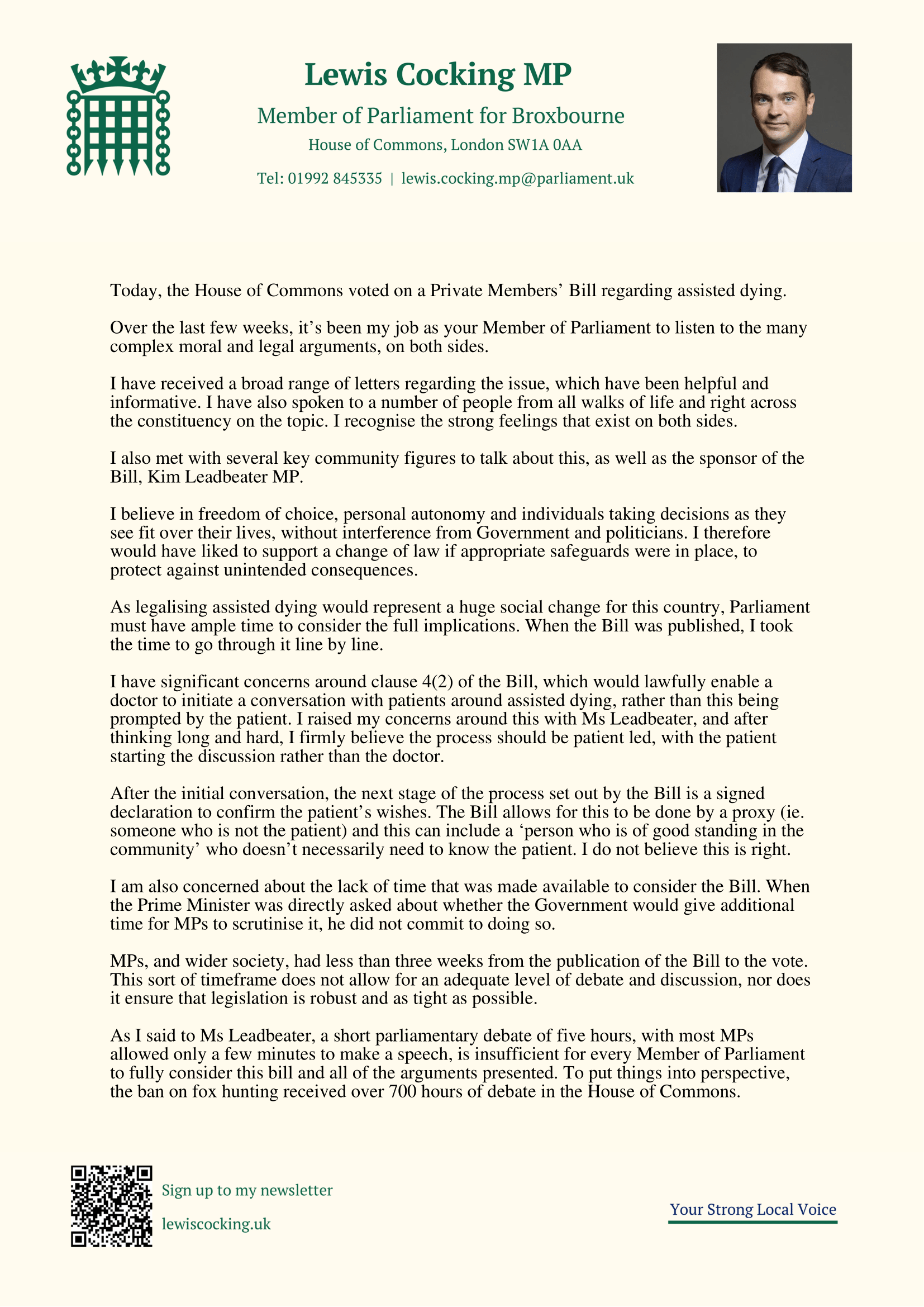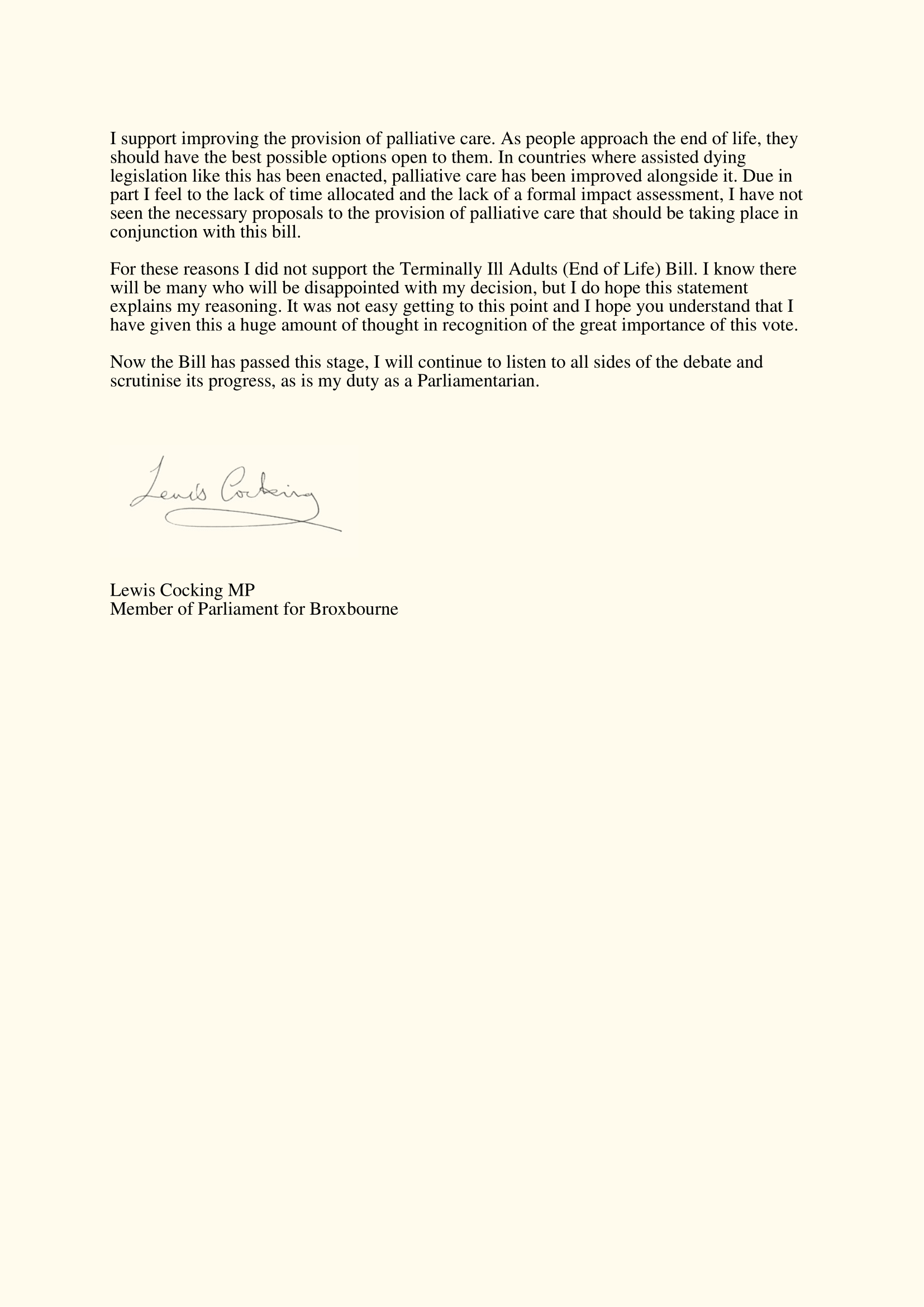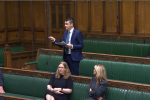
Today, the House of Commons voted on a Private Members’ Bill regarding assisted dying.
Over the last few weeks, it’s been my job as your Member of Parliament to listen to the many complex moral and legal arguments, on both sides.
I have received a broad range of letters regarding the issue, which have been helpful and informative. I have also spoken to a number of people from all walks of life and right across the constituency on the topic. I recognise the strong feelings that exist on both sides.
I also met with several key community figures to talk about this, as well as the sponsor of the Bill, Kim Leadbeater MP.
I believe in freedom of choice, personal autonomy and individuals taking decisions as they see fit over their lives, without interference from Government and politicians. I therefore would have liked to support a change of law if appropriate safeguards were in place, to protect against unintended consequences.
As legalising assisted dying would represent a huge social change for this country, Parliament must have ample time to consider the full implications. When the Bill was published, I took the time to go through it line by line.
I have significant concerns around clause 4(2) of the Bill, which would lawfully enable a doctor to initiate a conversation with patients around assisted dying, rather than this being prompted by the patient. I raised my concerns around this with Ms Leadbeater, and after thinking long and hard, I firmly believe the process should be patient led, with the patient starting the discussion rather than the doctor.
After the initial conversation, the next stage of the process set out by the Bill is a signed declaration to confirm the patient’s wishes. The Bill allows for this to be done by a proxy (ie. someone who is not the patient) and this can include a ‘person who is of good standing in the community’ who doesn’t necessarily need to know the patient. I do not believe this is right.
I am also concerned about the lack of time that was made available to consider the Bill. When the Prime Minister was directly asked about whether the Government would give additional time for MPs to scrutinise it, he did not commit to doing so.
MPs, and wider society, had less than three weeks from the publication of the Bill to the vote. This sort of timeframe does not allow for an adequate level of debate and discussion, nor does it ensure that legislation is robust and as tight as possible.
As I said to Ms Leadbeater, a short parliamentary debate of five hours, with most MPs allowed only a few minutes to make a speech, is insufficient for every Member of Parliament to fully consider this bill and all of the arguments presented. To put things into perspective, the ban on fox hunting received over 700 hours of debate in the House of Commons.
I support improving the provision of palliative care. As people approach the end of life, they should have the best possible options open to them. In countries where assisted dying legislation like this has been enacted, palliative care has been improved alongside it. Due in part I feel to the lack of time allocated and the lack of a formal impact assessment, I have not seen the necessary proposals to the provision of palliative care that should be taking place in conjunction with this bill.
For these reasons I did not support the Terminally Ill Adults (End of Life) Bill. I know there will be many who will be disappointed with my decision, but I do hope this statement explains my reasoning. It was not easy getting to this point and I hope you understand that I have given this a huge amount of thought in recognition of the great importance of this vote.
Now the Bill has passed this stage, I will continue to listen to all sides of the debate and scrutinise its progress, as is my duty as a Parliamentarian.





